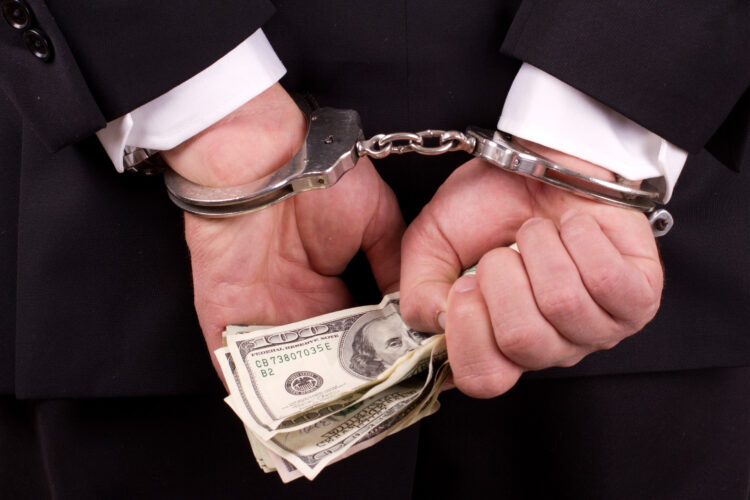August 2, 2022
Business activities – even ones that may seem benign or well within a common industry practice – can lead to both state and/or federal investigations or prosecutions against both individuals and business entities, including those persons who may not be suspected of committing the specific underlying criminal act but rather agreed to a plan to do so or assisted in the act, even without an intent to break the law. While both state and federal criminal investigations can have significant negative consequences for a person or business organization, a federal investigation can often mean more substantial governmental resources which are brought to bear in pursuing a criminal case, and more significant financial penalties and prison sentences.
Defining White Collar Crime
There is not necessarily a specific definition under the law for what constitutes “white collar crime.” Whether or not an alleged criminal act might be considered a white collar crime, a prosecutor has the power to investigate and bring charges against an individual (or business) with the potential for a criminal record, steep fines, and possible jail or prison time.
That said, “white collar” tends to suggest a criminal act carried out by a person in a business and/or financial environment, and generally the term refers to a non-violent crime involving attempted financial gain to an alleged perpetrator and financial damage to alleged victims. The white-collar crime program of the Federal Bureau of Investigation (FBI) – the chief federal law enforcement investigation organization – focuses on white collar criminal acts such as corporate fraud (including falsification of financial information, insider trading, kickbacks and tax violations), money laundering, securities and commodities fraud, mortgage and financial institution fraud, and intellectual property theft and piracy.
These are only broad examples, and there are an expansive amount of activities – again even ones that may seem like normal industry practice – that might fall within the umbrella of alleged white collar criminal activity.
When Does It Qualify As a Federal Crime?
All 50 states have their own distinct codes of criminal law which set forth acts that are defined as criminal within that state, as well as potential criminal penalties in the event of a successful conviction. State and local prosecutors are tasked with prosecuting violations of such state laws, with local and state police and agencies often leading the investigations that form the basis for such prosecutions.
Likewise, the federal government enacts the laws that form the basis of federal criminal prosecutions, with federal agencies investigating such acts, and the Department of Justice – including United States Attorney offices in each state – prosecuting the individuals and businesses that are alleged to have violated federal criminal laws. Based on constitutional mandates limiting the purview and reach of federal laws, federal criminal laws generally involve activity that reaches beyond an individual state and/or affects interstate commerce such as mail fraud and wire fraud. Because crimes involving financial transactions typically involve use of interstate communications and/or financial systems, they can often come within the jurisdictional reach of federal law enforcement.
Who Investigates White-Collar Crimes?
Again, prosecutions for white collar crimes are conducted by the Department of Justice either through its main Washington, D.C. headquarters (“Main Justice”) or U.S. Attorney’s Offices in each state. The FBI often pursues white collar criminal investigations in addition to federal prosecutors, but other federal agencies often pursue federal criminal and civil investigations as well, including the Drug Enforcement Administration (DEA), the Securities and Exchange Commission (SEC), the Internal Revenue Service (IRS), the Environmental Protection Agency (EPA), the U.S. Postal Inspection Service, and the Treasury Department’s Financial Crimes Enforcement Network.
Penalties
The penalties for a federal crime are set forth by the individual statutes defining and prohibiting criminal behavior. With white collar crimes, there is often a significant financial penalty associated with a criminal conviction – which can include both criminal fines as well as sanctions, such as the disgorgement of profits – in addition to potential jail or prison time. The financial penalty is often tied to the amount of alleged ill-gotten gains associated with the criminal act. For example, a conviction for violation of federal money laundering laws can result in a prison sentence of up to 20 years, and a financial penalty of $500,000 or twice the value of the funds involved in the transactions at issue, whichever is greater.
Working With Outside White Collar Defense Counsel
The time to seek experienced counsel from a skilled white collar defense attorney is at the first signs of a potential government investigation, enforcement action or prosecution. Often, the first steps in responding to a potential government proceeding into alleged white collar criminal activity are the most critical in setting the course for an ultimate outcome that defends one’s interests, reputation, and, in some cases, freedom. Contact our office to speak with an experienced white collar defense attorney regarding your situation today.

